'Qatar targeted my brother on Grindr - I want him home’
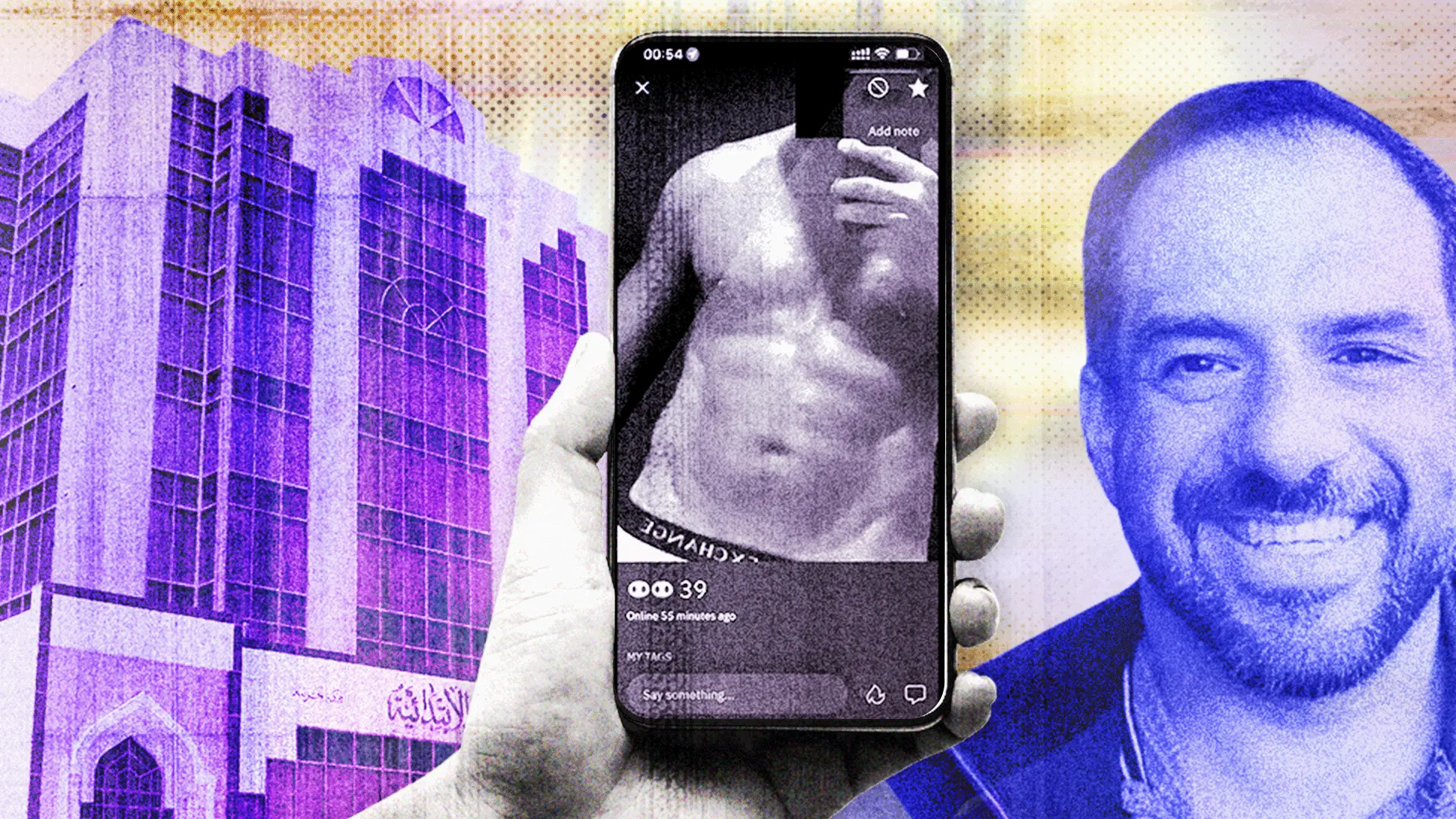 BBC
BBCThe family of a gay British-Mexican man held in Qatar for alleged drug offences has given further details of what they say was a "honeytrap" operation using the gay dating app, Grindr.
Manuel Guerrero Aviña was approached online by a man called "Gio" and they arranged to meet - but he was instead met by police and arrested on false drug charges, Manuel's brother Enrique told the BBC.
Manuel, who has HIV, has now completely run out of his usual medication, his family says. They want the UK government to bring him back home for treatment.
Amnesty International has described Manuel's experience in detention as "nothing short of horrific" and says that his trial was "marred by a range of due process violations." Its concerns are echoed by other human rights organisations the BBC has spoken to.
Qatari officials insist Manuel has been treated "with respect and dignity".

At first glance "Gio" - who also used the name "Mike" - looked like the thousands of other men on dating apps around the world.
His Grindr profile, seen by the BBC, was full of gym selfies showing off his six-pack. His listed interests were karaoke, football and Netflix.
The man also had a similar profile on Tinder, where his identity would have had to be verified by the app's facial recognition technology.
Enrique says his brother swapped phone numbers with the man and invited him over to his apartment in Qatar's capital, Doha.
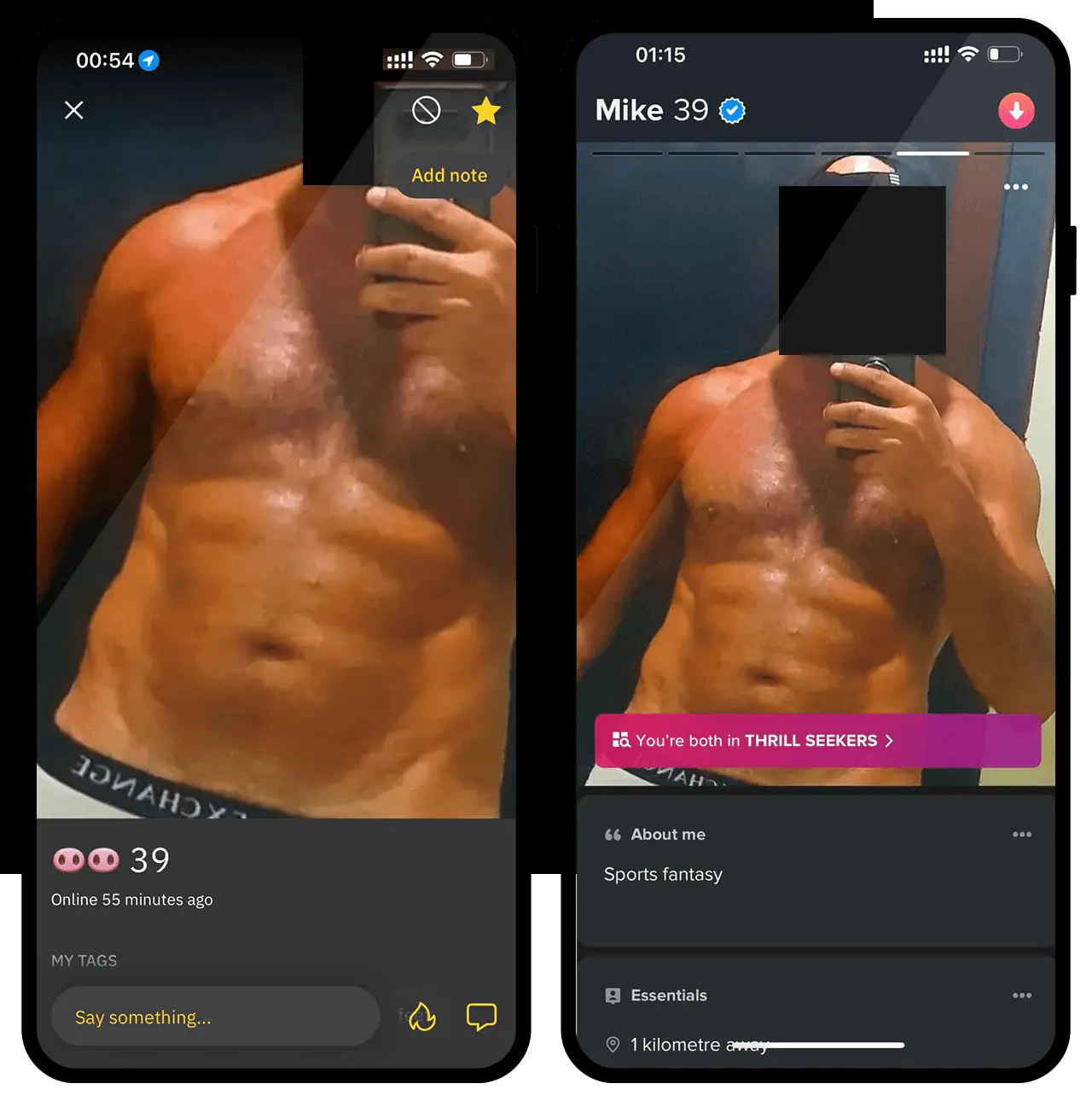
But when Manuel went down to the lobby of his building to meet "Gio", he was instead confronted by Qatari police officers, according to his brother, who says they immediately handcuffed Manuel and placed him under arrest.
Homosexuality is illegal in Qatar but Manuel, an airline worker, had lived a "normal life" for the past seven years and had never been in trouble with the authorities, his family says.
Qatari officials insist the 44-year-old's arrest in February was "for possession of illegal substances on his person and in his apartment" and that "no other factors were taken into account".
They say he "acknowledged" possessing illegal substances, adding: "A drug test later came back positive, confirming the presence of illegal substances, specifically amphetamine and methamphetamine, in Mr Aviña's system at the time of his arrest."
Enrique maintains that Manuel didn't take any drugs and says a small amount of methamphetamine was planted on him, which he was "pressured" into accepting was his.
BBC News has not been able to independently verify all of the claims made by Manuel and his family. Many of the accusations about his treatment after his arrest took place behind closed doors with few witnesses.
However Manuel's family has presented a detailed timeline of events, and previous reporting, on both the treatment of LBGT people and the behaviour of police in the country, suggest others have had similar experiences.
While being held in custody at the police station, Manuel allegedly witnessed others being "whipped on their backs" by officers - and was threatened with similar treatment if he did not sign several legal documents.
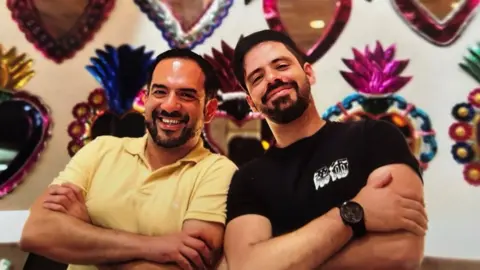 family handout
family handoutManuel told his family that these documents were written in Arabic - a language he could not read - and that he was not given access to a translator or any legal advice.
His brother says that when Manuel told the prison about his HIV they moved him into solitary confinement and would sporadically withhold his medication to pressure him into sharing information about other gay men - which he refused to do.
Enrique has told the BBC that Manuel was interrogated for hours at a time.
Withholding medication in prison is "morally intolerable" and could already have had very serious consequences for Manuel's health, the UK's National Aids Trust says.
The charity is calling on the UK government to intervene and bring Manuel back for proper treatment.
Qatari officials have told the BBC that Manuel was "treated with respect and dignity throughout his detention".
He was told that he is facing anything from six months to three years in prison for possession and consumption of drugs.
But for the time being, after having spent 42 days in a Qatari detention centre, he has been granted provisional release and is staying with friends while he waits for further court appearances.
Manuel's passport has been taken away - the conditions of his release mean he is banned from travelling abroad.
Dana Ahmed, a Middle East researcher at Amnesty International, says his treatment in detention, and later in his first trial sessions "raises serious fears that Manuel is being targeted for his sexual orientation and is being coerced into providing the authorities with information that they could use to pursue a crackdown on LGBTI individuals in Qatar".
Serious health concerns
Manuel's family has told the BBC that his usual treatment, prescribed by British doctors, ran out in mid-April. He now has to take an alternative provided by the Qatari authorities.
Before his arrest, Manuel's HIV was being treated with antiretroviral medication that he would receive during trips to the UK and Mexico. This kept the virus under control and meant he could not pass it on to others.
In a letter to the Foreign Office asking it to intervene, the National Aids Trust explained that by only being allowed to take his medication sporadically in prison, Manuel's body may have already built up a resistance, which would make it less effective and could have very serious health implications.
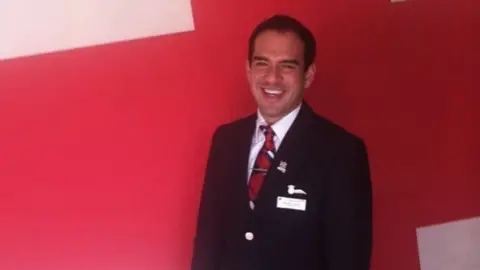 Family handout
Family handout"We need Manuel to get access to treatment, but also access to professional medical expertise from a HIV clinician outside of Qatar to test him and properly assess what his future treatment needs are," says Daniel Fluskey, director of policy for National Aids Trust.
The Foreign Office says it is "supporting a British man in Qatar" and is "in contact with his family" - but it has declined to comment further.
But the BBC has seen a letter in which Foreign Secretary David Cameron tells a group of MPs concerned about Manuel's case that the government takes his health and welfare extremely seriously. He reassures them that he's "closely following the case" - but says the UK cannot intervene in the judicial affairs of another country.
'Hunted and abused'
The BBC was originally made aware of Manuel's case by the human rights organisation FairSquare, whose co-director, James Lynch, is a former British diplomat in Qatar.
"This has been about his LGBT status from the start and his desire to express that status and his identity, and that's what this case is about," says Mr Lynch, who is now supporting Manuel's family.
"He's an LGBT person and he was targeted through a dating app. You don't do that, unless that's the thing you are focused on."
To try to verify the family's claims, the BBC has also spoke to several other human rights experts.
The sort of interrogation Manuel allegedly experienced while in detention has been documented in the past. A 2022 Human Rights Watch (HRW) report which interviewed six LGBT Qataris found that all of them had been asked to hand over information that could identify others like them, and says that they had also witnessed or received physical abuse.
Rasha Younes, the deputy director of HRW's LGBT rights programme, has told the BBC that Qatari security forces are "detaining and abusing LGBT people simply for who they are", with ill-treatment including slapping, kicking and punching.
She adds that they also "inflict verbal abuse, extract forced confessions and deny detainees access to legal counsel, family and medical care".
The latest human rights report on Qatar from the US State Department says that in 2023, "LGBTQI+ persons faced discrimination under the law and in practice".
It adds: "There were no government efforts to address potential discrimination, nor were there antidiscrimination laws to protect LGBTQI+ individuals targeted on the basis of their sexual orientation, gender identity, or gender expression."
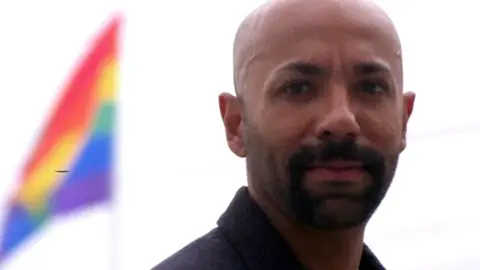
Qatar's treatment of LGBT people came under the spotlight when it hosted the FIFA World Cup in 2022.
At the time, Qatari officials said "everyone is welcome" - but reports of LGBT people being "hunted and abused" are widespread, says Qatari LGBT activist, Dr Nas Mohamed.
Dr Mohamed, who has asylum in the US, came out publicly ahead of the tournament, but remains in contact with many gay Qataris.
"I don't know if Manuel used drugs or not. But the fact that he's been questioned on this is because he's gay and was hunted on Grindr," he says.
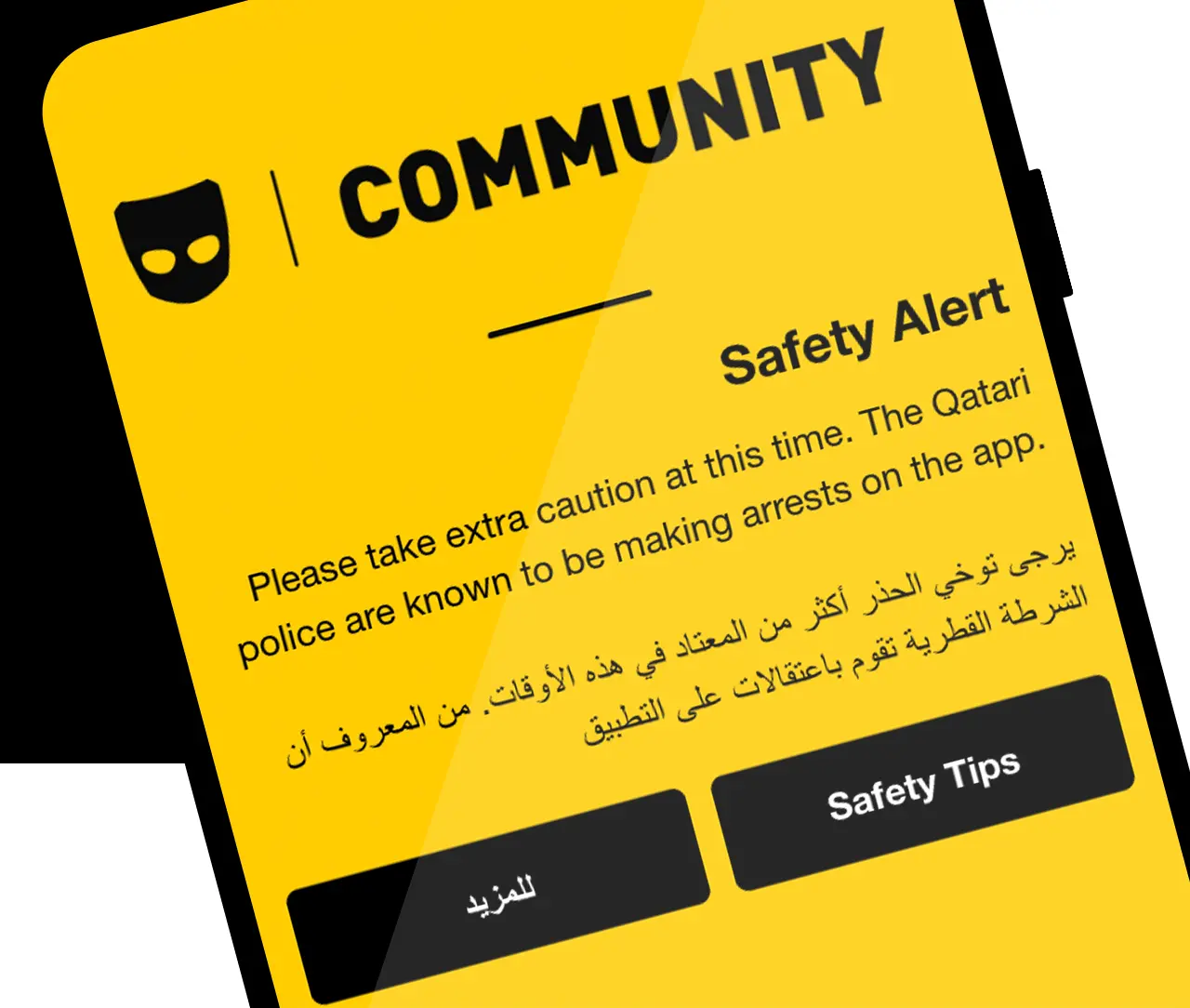
Following Manuel's arrest, Grindr is now displaying a warning to users in Qatar that "police are known to be making arrests on the app".
A spokesperson for Grindr says that the company is "outraged" by Manuel Aviña's case, and that it takes its role "as a connector for the queer community very seriously".
They add: "Tragically, it is still illegal to be gay in more than 60 countries, in many of which Grindr is one of the only ways for members of the LGBTQ+ community to connect with one another."
Enrique says it has been a difficult time for his brother Manuel and the whole family.
"When I saw him in the prison and I heard what had happened to him - it sounds like a case from another century," he says.
He is hoping that international attention, and interventions from organisations such as FairSquare, will mean his big brother is treated fairly.
He says Manuel now wants just one thing - to be brought back safely to the UK.
